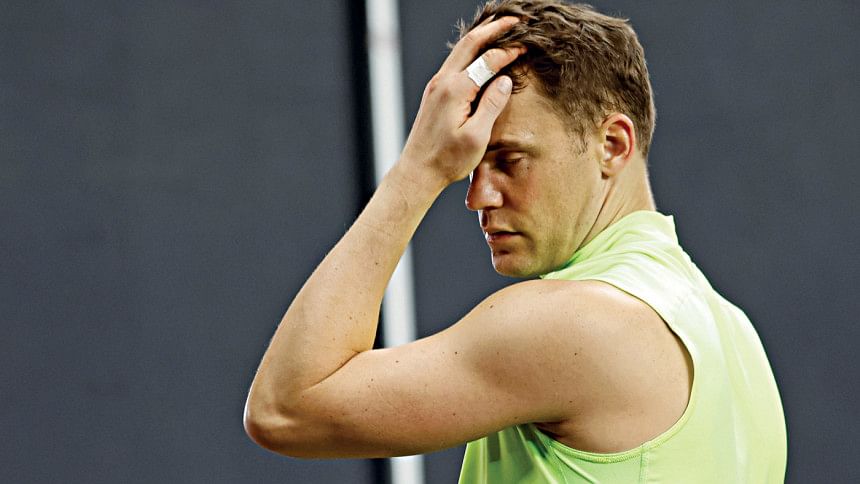An all-time Löw

The extent of Germany's helplessness as they capitulated to a 6-0 loss against Spain in Seville on Wednesday night was unexpected, even for those who had long banished any hopes they had once harbored about the current side.
It was Germany's worst loss in competitive football and the first time they had conceded six since a 6-3 loss to France in the 1958 World Cup. In terms of losses in all competitions, it matched a 6-0 defeat to Austria in 1931.
Die Mannschaft, now six years removed from their World Cup triumph, were outplayed to such an extent that even a cursory glance at the statistics paints a turbulent picture. They managed a total of zero shots on target and two shots overall, compared to Spain who had 10 and 22 respectively.
Bastian Schweinsteiger's summation offered interesting insight into the psyche of the team. "What bothered me is that they didn't fight back. It didn't feel like a team. No commands. You only heard the Spanish speak."
As much of a cliché as it may be at this point, everything we know suggests football is cyclical. Spain, after conquering the globe between 2008 and 2012, suffered a 5-1 defeat to the Netherlands in the 2014 World Cup, exiting in the group stages.
That famous curse of the champions -- which has seen World Cup holders regularly exit in the group stages as they launch their title defence -- goes a long way towards illustrating this point.
In winning the 2010 World Cup, Spain scored 8 goals, the fewest-ever by a winning team. By 2014, Germany raised the stakes to 18 goals.
That, again, can be indicative of the direction the sport had moved. Spain's possession-based style was countered by a low-block, counter-attacking style. That led to managers like Jurgen Klopp and Hansi Flick determining that possession was not the be-all and end-all, with Klopp going so far as to saying "pressing is the best playmaker".
Most damning perhaps, given that Joachim Low has chosen to stick to a slower style of the game, often experimenting with a five-at-the-back, is that Germany had only 30% of possession, despite boasting midfield generals like Toni Kroos and Leon Goretzka. The front three of Leroy Sane, Serge Gnabry and Timo Werner would also be better suited to a much faster style of play.
Another major deficiency has been the 60-year-old's inability to select the right players. After the debacle in 2018, Low dropped Thomas Mueller, Jerome Boateng and Mats Hummels. It was widely regarded as the correct decision at the time, but despite those players, especially Muller, staging a resurgence, they have been denied a chance at reintegration. That has also led to reports of ill-will within in the team, reflected perhaps in the lack of fight on display.
Even German legend Lothar Matthaus was left screaming for those players to return, hoping Hummels and Boateng could shore up a defence that featured the likes of Robin Koch and Phillip Max.
Regardless, Low will continue at Germany as national team director Oliver Bierhoff confirmed, saying: "This game changes nothing. We still trust Joachim Loew, no doubt about that."
Low's legacy has been tainted to such an extent that Flick's influence on Germany has also become a raging issue. He was the national team assistant from 2006 to the end of the 2014 World Cup and now some wonder whether he was the true mastermind behind it all. After all, he guided Bayern Munich to the most impressive Champions League run in history backed with a clear, ultra-modern style of play, unaffected by Germany's dismal run.
At best, Low is a manager who has simply failed to adapt. At worst, he is the man that has alienated his team by refusing the play to their strengths and with the right players. And despite his past exploits, he now risks leaving behind a legacy of a man who wore out his welcome like none other.

 For all latest news, follow The Daily Star's Google News channel.
For all latest news, follow The Daily Star's Google News channel. 



Comments